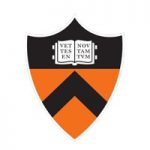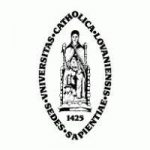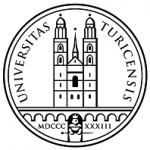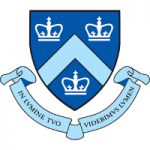项目介绍
COURSES:
Graduate study is intended to prepare a degree candidate for teaching in departments of religious studies or related programs and provide the training necessary for scholarly research in a specialized field. Students normally take four different types of courses in preparing for the general examination: (1) two departmental seminars, REL 501 and 502 (offered in alternate years); (2) appropriate specialized seminars; (3) reading courses (700 level) within a student’s special field; and (4) other courses offered by the University, including undergraduate courses in Religion and courses in other departments (such as African American Studies, Anthropology, Classics, East Asian Studies, English, History, Near Eastern Studies, Philosophy, and Sociology). Students are also encouraged to take courses at the Princeton Theological Seminary, Columbia University, Rutgers University, and the University of Pennsylvania through the various reciprocal and cooperative arrangements of the Graduate School.
Increasingly, candidates for the degree work closely with interdepartmental programs, such as those in East Asian Studies, Hellenic Studies, Late Antiquity, Near Eastern Studies, and Political Philosophy, as well as interdisciplinary centers such as the Center for the Study of Religion and the University Center for Human Values.LANGUAGE(S):
Candidates for the degree of Doctor of Philosophy (Ph.D.) in Religion are expected to have a reading knowledge of two modern foreign languages, usually French and German, occasionally with the substitution of Spanish. Students concentrating in Asian religions substitute Chinese, Japanese, Sanskrit, or Tibetan for either French or German. For students in Religion in America, the choice of languages should be made in consultation with advisers and the rest of the subfield faculty. This requirement may be fulfilled by completing summer language courses offered by the University, or by passing tests given by the language departments. All entering students are strongly urged to achieve competence in at least one of these languages prior to entering the program. First-year students who are seeking admission for the second year of study must have completed the requirement in one foreign language.
Beyond the basic requirements, students are expected to demonstrate competence in whatever additional languages they need to pursue advanced work in their own areas of specialization. For example, students who concentrate on Islam must have a reading knowledge of Arabic along with one modern European language, while students in religions of Late Antiquity must demonstrate knowledge of two ancient languages in addition to the two modern languages.
Students must show evidence of competence in the two required modern languages before being admitted to a fifth term. In addition, students need to demonstrate knowledge of other languages that are necessary for advanced work in their area of specialization.GENERAL EXAM:
Each student’s knowledge and competence in the special field is tested in the general examination, normally completed by the middle of the third year of graduate work. By the end of the first year, a student and his or her adviser agree on the proposed parts of the general examination. The examination typically consists of four parts and may entail preparing scholarly essays (as if for publication) as well as sitting for traditional written examinations. See departmental website for format of subfield general examinations.QUALIFYING FOR THE M.A.:
Students normally qualify for the Master of Arts (M.A.) degree on the way to the Ph.D. by completing the general examination. Students who leave the Ph.D. program for various reasons may also be awarded the M.A. by satisfactorily completing all required course work, the course distribution requirement, and the language requirement.TEACHING:
Normally, all graduate students serve at some point in their careers as assistants in instruction. An assistant leads preceptorials in undergraduate courses and is responsible for grading students as well. This opportunity depends, at any given time, upon undergraduate instructional needs, but the department views such experience as integral to the professional education it offers. It also encourages graduate students to give lectures in appropriate undergraduate courses taught by members of the faculty.DISSERTATION AND FPO:
After completing the general examination, all students participate in a faculty-led dissertation seminar for which they write a thesis proposal. This dissertation proposal becomes the basis of a one-hour oral examination, after which students continue to work on the dissertation with the guidance of two faculty directors. A final public oral examination is given after each candidate’s dissertation has been read and approved by their dissertation faculty advisers and readers. The examination has two parts. The first consists of a 30-minute lecture on the dissertation to cover the following topics: a justification of the subject treated; an account of possible methods of treating the subject and a justification of the method chosen; an account of any new contributions made; and a consideration of the possibility of future studies of the same kind, including an account of plans for future scholarship and publication. During the second part of the examination, the student answers a series of questions related to subjects presented in the lecture and the dissertation, and sometimes relating to the teaching of material dealt with in the dissertation.
联系方式
电话: 609-258-3000相关项目推荐
KD博士实时收录全球顶尖院校的博士项目,总有一个项目等着你!






